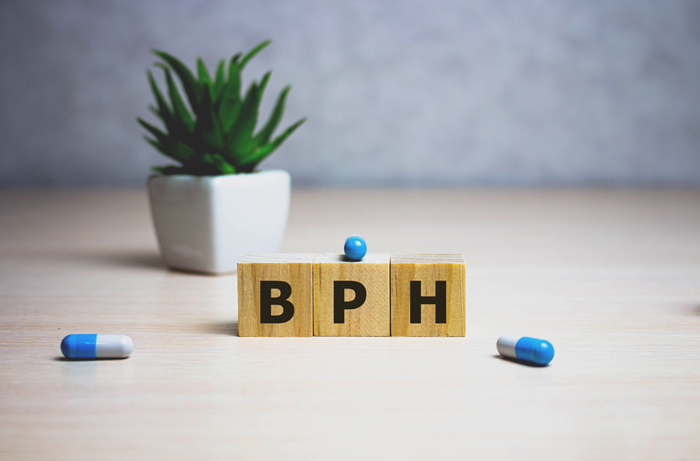Enlarged prostate treatment (BPH) Treatment & Diagnostics in Chunni Ganj, Kanpur
Enlarged prostate treatment (BPH)
Enlarged prostate treatment is used for treating cancer in the prostate glands of the male reproductive system. Enlarged prostate treatment is important for preventing other diseases such as kidney stones, bladder stones, acute urinary traction, or urinary tract infections.

What are the types of enlarged prostate treatment?
An enlarged prostate can be treated by medications, different surgeries or therapies. Some of the major treatments of enlarged prostate are:
- Open simple prostatectomy: This surgical method is used in rare or severe cases, such a case of a very enlarged prostate, bladder damage, or other problems. In this method, the surgeon gives an incision below the navel, or several small incisions may be given in the abdomen through laparoscopy, then the surgery may remove the enlarged prostate that affects the flow of urine.
- Laser surgery: In this method, a scope is inserted through the penis tip into the urethra. A laser is passed through the device that burns down the prostate tissues. Holmium laser ablation is also a form of laser surgery, in this method, a different type of laser is used and the surgeon uses two instruments, one is a laser that destroys and removes the prostate and the other one is the morcellator that is used to slice the extra tissues into small segments.
- Surgical methods: A major surgery for enlarged prostate treatment includes transurethral surgery, in this method, a resectoscope is inserted through the penis and the surgeon removes all the prostate tissues from the urethra. It is not open surgery and does not require any other external incision.
- Alpha-blockers: It is a form of medication that helps in relaxing the bladder neck muscles and the muscles in the prostate. This process leads to an increase in urine flow and a less frequent urge of urinating within the day.
- Hot water treatment: In this procedure, hot water is transported in the body through the use of a catheter into the centre of the prostate. This is a computer-controlled procedure that heats a certain area of the prostate but all the other remaining tissues are protected. The heat destroys the abnormal tissues. The tissues are then excreted in the urine or absorbed by the body.
- Transurethral needle ablation: In this procedure, a specific region of the prostate is burnt through high-frequency radio waves, these waves are delivered through twin needles. This treatment results in a better flow of urine and helps in relieving the symptoms of transurethral needle ablation.
- Transurethral microwave thermotherapy (TUMT): In the cases where drug therapy isn’t enough to relieve the symptoms of an enlarged prostate, so in those cases, transurethral microwave thermotherapy is given. In this procedure, the microwaves destroy the prostate tissues with heat. This procedure does not completely cure the enlarged prostate but it helps in cutting down the urinary frequency that makes urination easy.
- Combination therapy: Combination therapy is sometimes required while taking alpha-blockers and 5-alpha reductase together may be more beneficial in some cases. When the combination of alpha-blockers and 5-alpha reductase inhibitors are consumed together then in some cases combination therapy may be given along them for the increasing inefficiency.
- 5-alpha reductase inhibitors: This is a form of medicine that helps in reducing the size of the prostate glands by blocking the hormones that encourage the growth of prostate glands.
Request an appointment at Apollo Spectra Hospitals, Kanpur
Call 1860-500-2244 to book an appointment
An enlarged prostate usually develops when the gland grows bigger. Enlarged prostate is common in men who are old. Usually, an enlarged prostate does not cause the risk of prostate cancer.
Enlarged prostate is rare in men below the age of 40. Around one-third of men experience the signs and symptoms of prostate enlargement after the age of 60 or in some cases, signs and symptoms occur after the age of 80.
Some of the risk factors include family history, obesity or being overweight, certain health conditions such as diabetes or other heart diseases, certain medications or drugs, African-American men are more at risk of getting an enlarged prostate, fitness, diet, or other environmental exposures.
Symptoms
Our Top Specialities
NOTICE BOARD
CONTACT US
CONTACT US
 Book Appointment
Book Appointment


.svg)
.svg)
.svg)
.svg)








